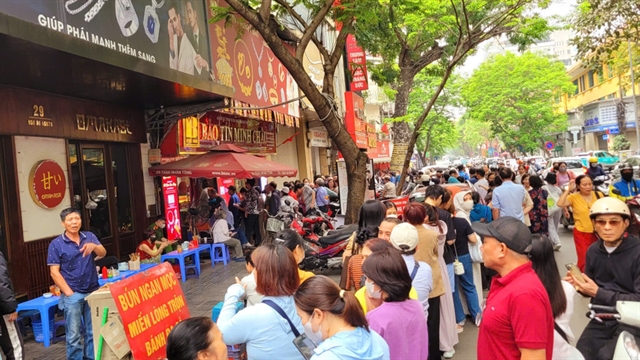The Government assigned the Ministry of Finance to coordinate with the State Bank of Việt Nam to incorporate this content in the draft replacement of the Law on Personal Income Tax (PIT) Law.

HÀ NỘI — The Government has issued Resolution No 278/NQ-CP, which includes a key directive to draft a replacement Law on Personal Income Tax (PIT), led by the Ministry of Finance, incorporating provisions on taxing income from gold transactions.
The most notable instruction is to bring income from buying and selling gold within the scope of PIT. The policy aims to improve market transparency and curb gold speculation. The Government assigned the Ministry of Finance to coordinate with the State Bank of Việt Nam to include this content in the draft replacement PIT Law.
According to General Director of Trọng Tín Tax Consulting Nguyễn Văn Được, gold business activities in Việt Nam are already subject to several taxes, including import duty, value-added tax and corporate income tax. By contrast, lawyer Nguyễn Đức Hùng of the Hà Nội Bar Association pointed out that individuals who buy and sell gold bullion currently faced virtually no taxes or fees. He said some people had taken advantage of this gap to buy large quantities of gold for speculation and hoarding, then sell at higher prices for profit.
Before Decree No. 232/2025/NĐ-CP (amending Decree 24/2012) on managing the gold business takes effect on October 10, the State Bank alone conducts imports and exports of raw gold, and these are tax-exempt. Gold bullion, mainly used for hoarding, is not subject to value-added tax. Experts broadly agree that applying PIT to income from bullion transactions would deter speculation and help stabilise domestic gold prices.
Beyond gold taxation, Resolution 278/NQ-CP directs a comprehensive review of the PIT regime. The Government calls for reassessing and adding categories of tax-exempt income, refining the progressive tax schedule, evaluating the impact on household businesses and strengthening decentralisation in administration.
The Ministry of Finance is to ensure the draft law aligns with the Constitution and related legislation such as the Land Law, the Securities Law, the Social Insurance Law and laws on high technology, while improving tax management so that collection is accurate, sufficient and timely and taxpayers are treated equally.
The Government also asks the Ministry of Finance to maintain Option 2 for the progressive tariff schedule as presented in Submission No. 570/TTr-BTC dated September 7, and to carefully assess the effects of PIT rules on business income so as not to disrupt production and trading. Further decentralisation and delegation are encouraged, with the Government detailing issues that remain fluid to ensure flexible direction and management.
Authorised by the Prime Minister, the Minister of Finance is to submit a draft law to be considered by the 15th National Assembly in October this year. Deputy Prime Minister Hồ Đức Phớc has been assigned to oversee completion of the replacement PIT Law. — VNS





